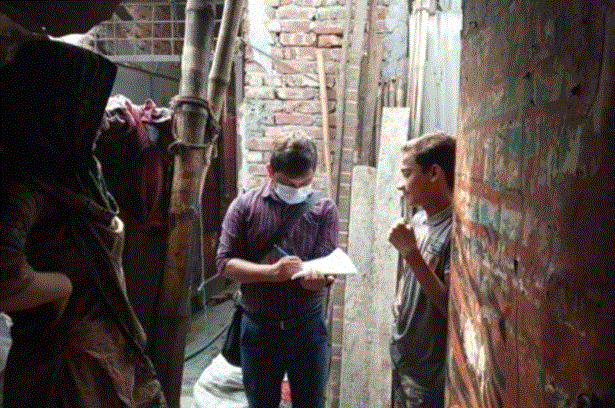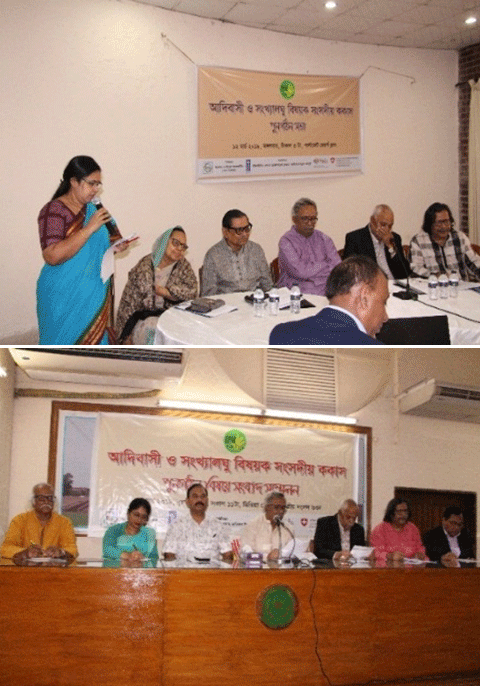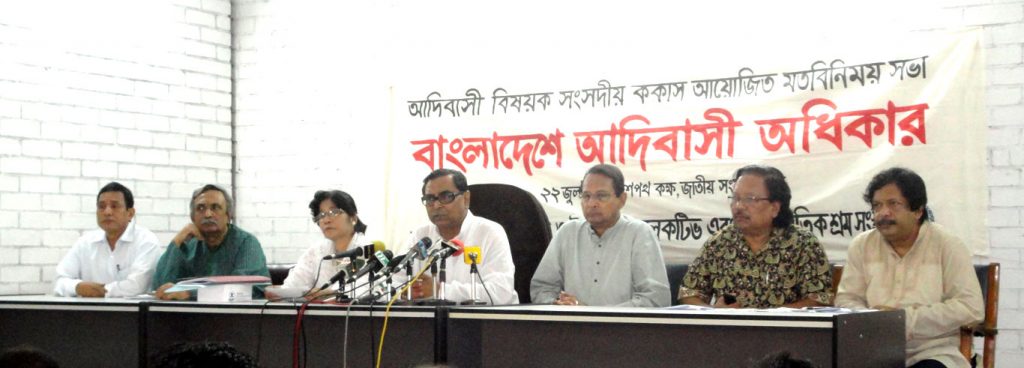MAJOR WORKING AREA

ACCOMPLISHMENTS
- “High Level Policy Dialogue for Indigenous Peoples’ Rights: ILO Conventions 107 and 169 for Indigenous and Tribal Peoples in Bangladesh”, funded by ILO, 11 January 2022.
- “High Level Policy Dialogue for Promotion and Protection of Rights of the Ethnic Minorities in Bangladesh” RDC, funded by Human Rights Program, UNDP, Dec 2018 – Nov 2019
- “Combating Discrimination against Ethnic minorities and Excluded Groups: through Right based Advocacy and Right Claiming Actions”, funded by UNDP. Oct 2017 – Sept 2018
- “Promoting Enhanced Participation and Empowerment of Dalit Communities in Bangladesh with an Evidence Base for Realization of Dalit Human Rights and Entitlements”, funded by European Union through Christian Aid, Bangladesh. April 2015-March 2018.
- “Combating Discrimination against Indigenous Peoples”, funded by Christian Aid, Bangladesh. March 2014 – February 2017.
- “Significance and importance of education movement of 1962” (Ongoing) commissioned by Jatiya
Muktijoddha Council, Ministry of Liberation War Affairs, Govt. of Bangladesh. - Endline Study on “Child Bride to Bookworm (Christmas Calendar 2019), Reducing School Dropout
in Urban Slums of Bangladesh” (Ongoing) supported By Plan International, August 2023. - “Language Movement of 1952: Context Analysis and Assessment of the Role of Bangabandhu”
(ongoing) commissioned by Jatiya Muktijoddha Council, Ministry of Liberation War Affairs, Govt. of
Bangladesh. - “Institutional Development of Centre for Development Innovation and Practices (CDIP): An
Investigative Research”(Ongoing), sponsored by CDIP - “Liberation War of Bangladesh: Sector 2 and Sector 11”, commissioned by Ministry of Liberation War
Affairs, Govt. of Bangladesh, March-June 2023.
- National Level Advocacy for National Coalition for Indigenous People (NCIP), 22 Oct 2022 at Gonosastho Nagar Hospital at Dhanmondi, Dhaka supported by Gonosastho Nagar Hospital
- National Level Advocacy for National Coalition for Indigenous People (NCIP), 23 August 2022 at CAMPE, supported by CAMPE
- Dialogues on Rights and Protection of the Indigenous Peoples and Minorities, 17 August 2022 at CIRDAP Auditorium, supported by HRP, UNDP
- Observing the International Indigenous Day 2022 with the United Nation’s proclaimed title “Role of Indigenous Women in Preservation and Transmission of Traditional Knowledge” at The Daily Star Auditorium, 07 August 2022 in Association with Parliamentary Caucus on Indigenous Peoples and Minorities, and National Coalition for Indigenous People (NCIP), supported by Manuser Jonno Foundation (MJF).
- Policy Advocacy, Nagorik Shampriti Shova, 08 May 2019, supported by HRP,

Activities

PARLIAMENTARY CAUCUS ON INDIGENOUS PEOPLES AND MINORITIES
RDC has been serving as the Secretariat of the Parliamentary Caucus on Indigenous Peoples (IP Caucus) since its inception in 2010 which has been working for the establishment and promotion of Indigenous peoples’ rights in Bangladesh in constitutional and legal framework. The Caucus is playing a key role to push forward the demand for constitutional recognition of the Indigenous peoples. Following the 11th National Parliament Election on December 30, 2018, RDC facilitated reformation of the of the IP Caucus and renamed as Parliament Caucus for Indigenous People and the Minorities (IPM Caucus) in order to expand the IPM Caucus to address human rights issues of the other minority groups. The reformed Caucus is composed of an Advisory Group which include the Chief Advisor and 14 members; Caucus Convener and 8 Caucus Members; 3 Technocrat Members; and 4 Community Representatives.
The IPM Caucusis one of the more appropriate and powerful bodies for influencing the government policy level. RDC involved the IPM Caucus in all its project activities particularly related to ethnic people and other minority groups.




